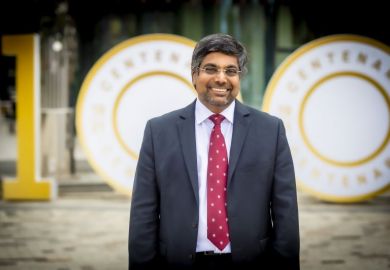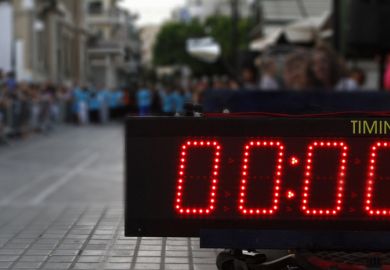An employment tribunal was wrong to dismiss a lecturer’s claim that he suffered age discrimination when his department made it essential for all new staff to have a PhD, a judge has ruled.
Stephen Games, 62, an hourly paid lecturer at the University of Kent’s School of Architecture, began legal action after he failed to make the shortlist for one of several full-time posts advertised by the school because he had no PhD.
Mr Games argued that making a doctorate an absolute requirement for selection amounted to indirect ageism because fewer older graduates in his field had PhDs, which placed him at a disadvantage to other applicants.
He cited Freedom of Information data from 33 universities, which showed that just five doctorates were awarded in architecture in 1981 compared with 90 in 2011.
However, his claim was rejected by an employment tribunal in July 2013, which accepted the university’s argument that Mr Games had had ample opportunity to gain a PhD by use of previous publications.
But an employment appeal tribunal has now ruled that the original judgment “erred in law” and that a fresh tribunal into the alleged age discrimination should be heard.
In a tribunal judgment handed down on 25 November, employment judge David Richardson said the tribunal had not stated why it had favoured Kent’s submissions over those from Mr Games and had “stated a conclusion with no reasoning”.
“The employment tribunal did not ask or answer the question whether the requirement for a PhD was necessary” and did not offer findings on evidence submitted by Mr Games that cast considerable doubt on the need for such a practice, the judgment said.
The tribunal’s acceptance that Mr Games could have achieved a PhD through prior publication was also flawed because what mattered was the situation in which he found himself as the applicant, rather than an imagined scenario in which Mr Games had foreseen the need to gain a PhD earlier, the appeal tribunal ruled.
Both Mr Games and Kent declined to comment on the case, which is now expected to be reheard in an employment tribunal next year.
Register to continue
Why register?
- Registration is free and only takes a moment
- Once registered, you can read 3 articles a month
- Sign up for our newsletter
Subscribe
Or subscribe for unlimited access to:
- Unlimited access to news, views, insights & reviews
- Digital editions
- Digital access to THE’s university and college rankings analysis
Already registered or a current subscriber?





